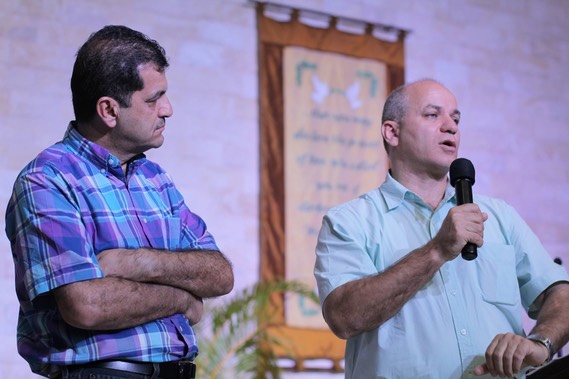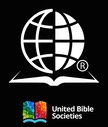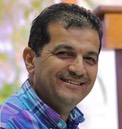
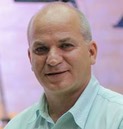
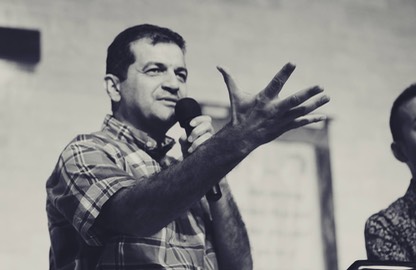
Forgiveness and Reconciliation Pastoral Conference
by Bonnie Lepelaar
On 6 and 7 November 2015, the Bible Society in Cambodia organized a Pastors Conference on the heels of its second Forgiveness and Reconciliation arts performance, Spean Metrey. The purpose was to motivate church leaders to take Forgiveness and Reconciliation further within their own congregations and communities. BSC invited the General Secretary of the Bible Society in Israel, Victor Kalisher, and the Coordinator of the Bible Lands Team, Labib Madanat, to share their experiences of working together in an environment of longstanding conflict and hostility.
Around 270 pastors and church leaders from 15 provinces came to Phnom Penh for the 2 day seminar. They not only enjoyed the informal dialoguing-style used by Victor and Labib, they were also moved by their real life examples and challenged to be intentional about Forgiveness and Reconciliation and to model it themselves. They are fully aware that it is desperately needed in their churches:
“We know God’s word but we don’t practice it.”
“We don’t want to forgive, even though God has forgiven us everything.”
Labib and Victor briefly described the history and current tensions between Israel and Palestine which influences the attitudes of Christians in those countries. Both Jewish and Palestinian Christians have their own narrative and can use the Bible as a tool of division instead of unity. To emphasize that Christians are all one in Christ, their Bible Societies produced a devotional book called My Brother’s Keeper, written by both Palestinian and Israeli believers. Names were not used, so the reader is not aware of who wrote which article. In this way, the reader is blessed regardless of who wrote it.
Then came the challenge, “Could this happen between Cambodian and Vietnamese believers?” It was a stunning thought, that the “enemy” could be a blessing! We were encouraged to actively seek fellowship with believers we might not even like and to regard brothers and sisters in Christ as a precious jewel, like the pearl hidden in the field.
When Jacob and Esau were reconciled, Jacob described seeing Esau as “like seeing the facing the God” (Gen. 33:10). Jacob saw love in the enemy’s face – the work of God. Again, the pastors were challenged, “Go and meet your enemy!” Although Jesus taught us to love our enemies, Paul and John wrote about loving one another. The progression from loving enemies to loving each other is because the first place to love your enemy is inside the church.
This principle is beautifully modeled when leaders from Israeli and Palestinian churches go into the Negev desert to meditate on the Bible. After 12 hours they come together to share, pray, and take communion. It’s called Sitting At the Feet of Jesus – SAFE. At the most recent SAFE gathering, a Palestinian believer told Victor: “My people are cursing your people every day; I pray that these curses will turn into blessings and I pray for blessings upon you.” What an amazing, God-given thing to say!
The Palestinian and Israeli Bible Societies also produced a booklet titled Rami and Ami. Rami was a Palestinian Christian who was murdered for his faith, and Ami, a Jewish believer, was badly injured in a bomb attack. In a both cases it was done by their own people. The booklet is a testimony to their faith in Christ and asks, “How is it possible to forgive and be healed?” Even the worst things that happen, God can bring about for good: believers on both sides sat and prayed together. The wife of Rami and the mother of Ami joined a celebration organized by the Bible Societies and spoke of how they were able to forgive their own people. Both women found that they were not alone in their grief and they created a community of forgiveness and healing in a very public way.
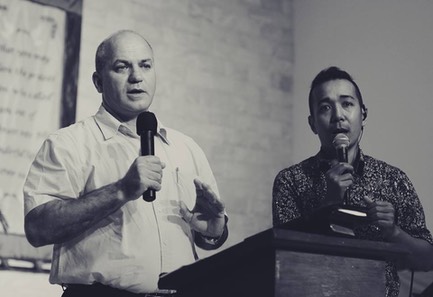
In the same way, the church in Cambodia can take a stand on forgiveness and reconciliation by declaring it and living it out. We can receive healing from every situation, no matter how terrible. Our identity doesn’t come from our past hurts. We have a new identity in Jesus Christ. The painful memories of the past are a reminder to continue forgiving, to let go and take it to the cross. “Shalom” means full, complete payment. Jesus is our shalom and he made full payment on the cross for the sins of the world.
By being faithful in forgiving the little things we can then forgive the big things. Forgiveness must be over a sin, not a disagreement, and we must love the one we correct or criticize. Forgiveness is not a stinking bag in a church, it should bring cleansing. It is not easy, it’s a process.
When we don’t feel like forgiving that is when we must die to ourselves and recognize that being right is not the most important thing. Labib says, “It is not about us, it is about Jesus in us.”
On behalf of the nation, the church in Cambodia needs to let go of the hurts from the past. Labib shared an image he had of the blood of Jesus washing away the blood of beloved ones on the hands of the Khmer Rouge. He asked, “Is there a sin too big for the blood of Jesus Christ? The church is the prophet of the nation, so the church should declare forgiveness openly, so that the nation is set free from the chains of the past. It is difficult but it must start inside the church.
Victor concluded, “Now is the time for forgiveness and reconciliation. Ask God for the power to forgive truly in your hearts, be ambassadors for forgiveness, make it a commitment in your life, and discipline your life in that. We all need Christ to work in our hearts. Help each other to let Holy Spirit work in our hearts.”
The conference wrapped up by screening highlights of the Spean Metrey performance. Church leaders are very keen to see the video recording shared widely and the original songs and music used at Christian events. This will be a great tool for churches to continue the conversation on Forgiveness and Reconciliation and now after the Pastors Conference, everyone is highly motivated to teach what they have learnt back in their churches and communities.
The Bible Society in Cambodia praises God for using these events to touch the hearts of thousands of people. May the church of Cambodia accept the challenges and be an agent for the healing of the nation.
